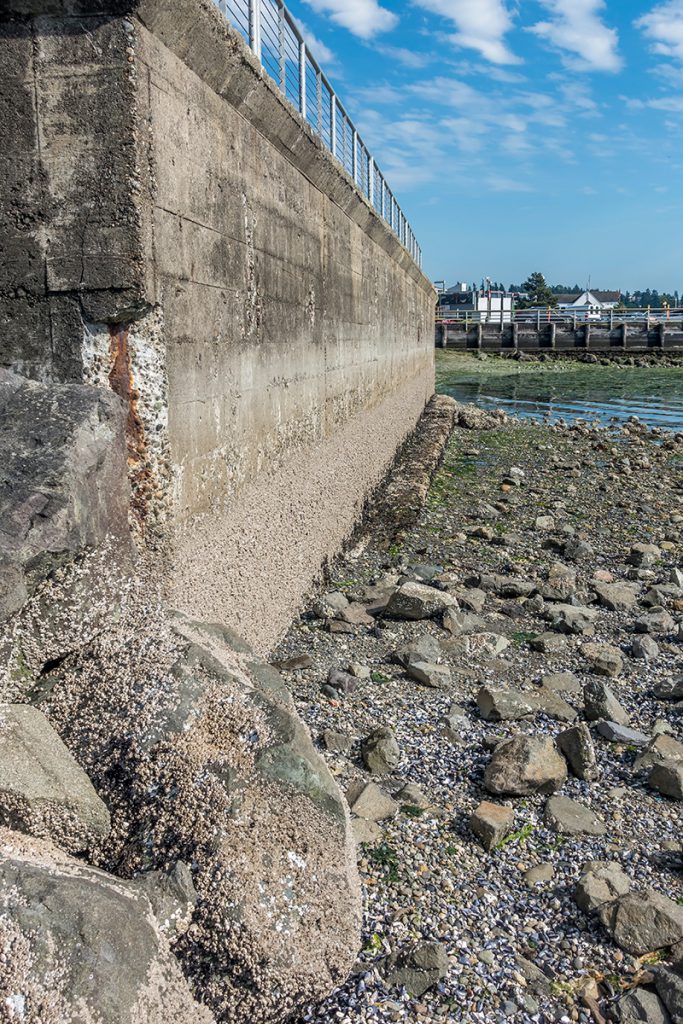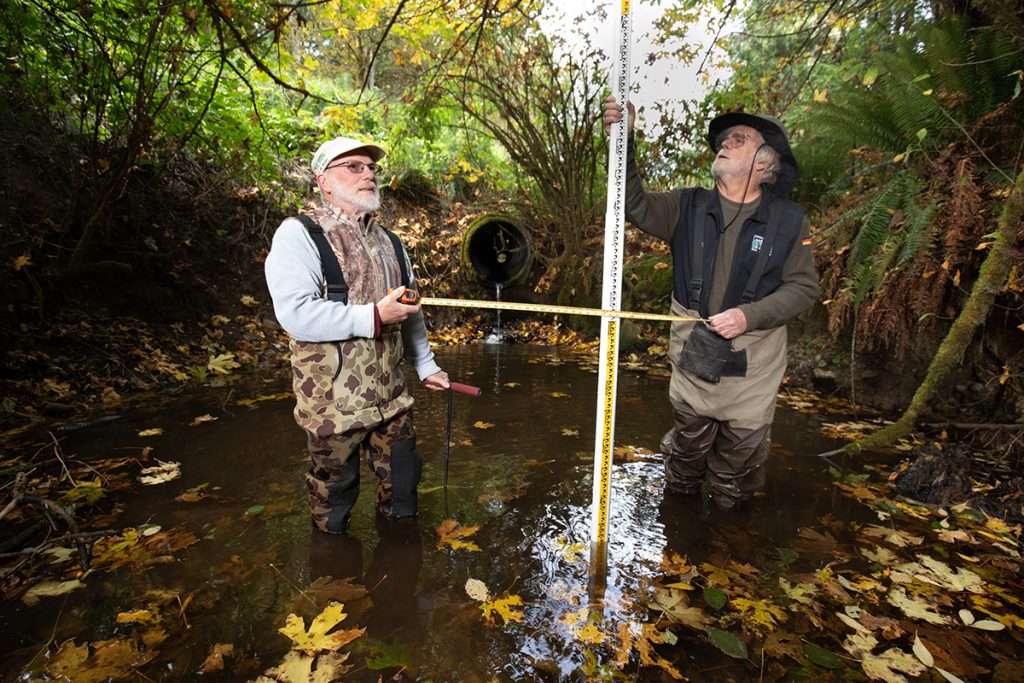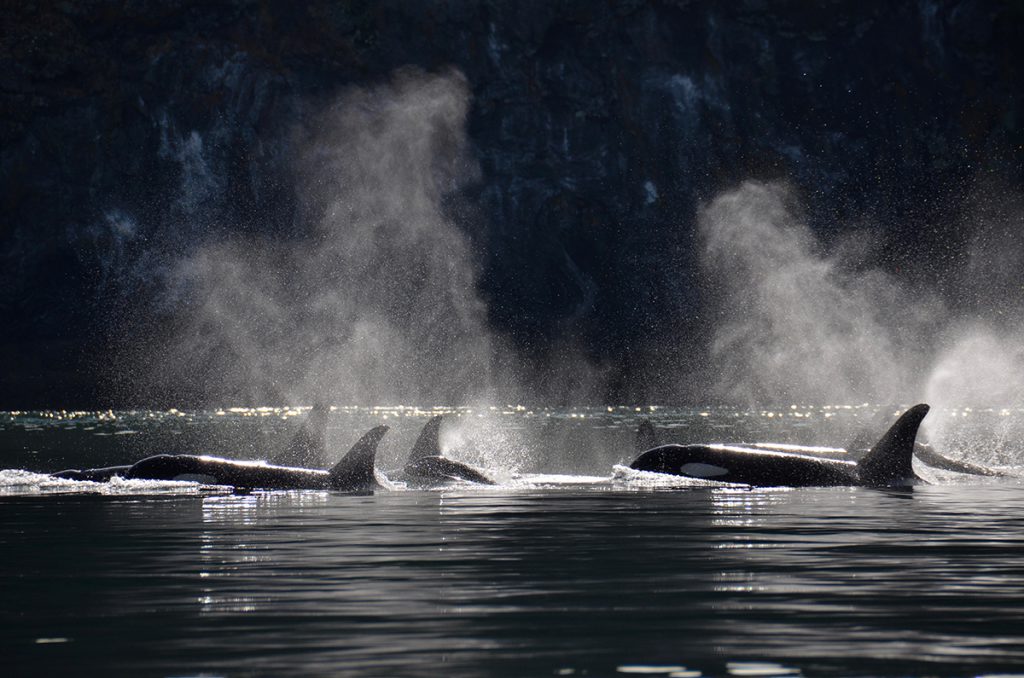What gives us hope?
Puget Sound recovery faces challenges that are serious and complex. Despite the magnitude of those challenges, we find many reasons to be hopeful about recovery.
Our congressional delegation and federal partners help lead and support Puget Sound recovery.
The Washington State Legislature passed budgets and bills that advance recovery, confront climate change, and extend the benefits of recovery to more people throughout the region.
Partners are coming together to shape the 2022-2026 Action Agenda, our shared vision and roadmap for Puget Sound recovery, to respond to the scale of the challenges we face.
All across Puget Sound people are getting involved and taking action to restore and protect Puget Sound.
People care about Puget Sound, about its current condition and its future. We know what we need to do to create a healthy and resilient Puget Sound, for us and future generations. We have the chance now to work together and build momentum for ecosystem protection and restoration. We can solve difficult problems with collective action. We can make sure that we all benefit from Puget Sound recovery.
Our delegation and federal partners advance Puget Sound recovery
The leadership of the Washington congressional delegation makes us hopeful, as does the dedication of our federal partners, and we are grateful to both our delegation and our federal partners for their commitment to Puget Sound recovery.
Our delegation supports the Promoting United Government Efforts to Save Our Sound (PUGET SOS) Act, which would raise the Puget Sound recovery effort to the same stature of national importance as that in the Chesapeake Bay. It sets up a Puget Sound Recovery National Program Office at the U.S. Environmental Protection Agency, defines the Puget Sound Federal Leadership Task Force, and authorizes $50 million annually for five years for recovery and restoration.
By supporting funding for federal programs like the National Estuary Program, the Puget Sound Geographic Program, and the Pacific Coastal Salmon Recovery Fund, our delegation has helped make progress in critical areas that include:
- salmon and orca recovery;
- fish passage infrastructure;
- habitat conservation;
- water quality improvement; and
- the protection of key species in Puget Sound.
Funding for the Puget Sound Geographic Program and National Estuary Program totaled $28.5 million in 2019, increasing to $33.75 million in 2020. Over the last eight years, the Pacific Coastal Salmon Recovery Fund has invested $124 million statewide, including over $14 million in the last two years for projects and administration in Puget Sound.
Our delegation also takes time to participate in Puget Sound Day on the Hill, hosted by the Partnership and the Northwest Indian Fisheries Commission. This event brings the delegation together with representatives from tribes, state agencies, local governments, nonprofits, and businesses, along with concerned residents, in support of action to save Puget Sound and uphold tribal treaty rights. During Puget Sound Day on the Hill, members of our delegation join the recovery community to discuss salmon recovery efforts, Puget Sound restoration and protection, and environmental policy. Puget Sound Day on the Hill helps build support for recovery priorities.
Federal partners
Our partners in the federal government play a crucial role in carrying out the Action Agenda and funding state and local partners. Federal agencies created their own Puget Sound recovery Task Force and Action Plan in 2016 to support the Action Agenda, including over 75 key actions to protect and restore Puget Sound.
With the tremendous partnership and collaboration of our federal partners, we have been able to make more progress on Puget Sound recovery and better coordinate our actions.
The U.S. Environmental Protection Agency and the National Oceanic and Atmospheric Administration, in particular, work with the recovery community and provide substantial support for the Action Agenda and salmon recovery efforts.
The U.S. Environmental Protection Agency (EPA)
EPA plays a vital role in Puget Sound recovery. The agency oversees the Puget Sound Geographic Program and National Estuary Program. EPA also passes funding to the state under the Clean Water Act to improve water quality.
National Oceanic and Atmospheric Administration (NOAA)
NOAA manages the Pacific Coastal Salmon Recovery Fund, a source of funding for critical salmon recovery projects. The fund helps salmon recovery organizations pursue habitat, hatchery, harvest, and hydropower actions for salmon recovery. It has helped prevent the extinction of 28 listed Pacific salmon and steelhead species on the West Coast.
The Washington State Legislature approved major policies and funding that support recovery
This year, the Washington State Legislature had a banner session, which makes us hopeful for the future. The Legislature advanced policies that address a number of challenges related to Puget Sound recovery and approved budgets that provide significant funding for recovery projects and initiatives.
2021 Legislative session
The Legislature passed two major climate change policy bills—one bill will reduce the carbon intensity of transportation fuels and another bill creates a cap and invest program to support climate change adaptation and the reduction of greenhouse gas emissions.
The Legislature passed the HEAL Act, a landmark environmental justice act. This bill carries out recommendations of the Environmental Justice Task Force to require agencies to follow specified environmental justice guidance. The Partnership’s Leadership Council supported the HEAL Act and we’re beginning to implement the environmental justice guidance within our work.
The Legislature passed other priorities of the Partnership’s Leadership Council in the 2021 session, including a bill that streamlines the permitting of salmon habitat restoration projects; a bill that requires the use of the least impactful alternative when replacing shoreline armoring for residences along Puget Sound shores; and a bill that reauthorizes the Washington Invasive Species Council for 10 years.
We look forward to the Legislature taking up important reforms in future sessions like Growth Management Act reform, addressing climate change, and addressing barriers to salmon recovery.
2021-23 state budget
Although funding continues to be a barrier, funding for Puget Sound recovery improved during the last session. In May 2021, the Legislature approved an estimated $1.3 billion for Puget Sound recovery. The Puget Sound budget for 2021-2023 is almost double the amount for 2019-2021, with a significant increase in funding for fish barrier removal and an 18 percent increase in the capital budget over 2019-21.
Partners are coming together to shape the 2022-2026 Action Agenda and ensure it responds to the scale of the challenge
 The 2022-2026 Action Agenda gives us hope. The 2022-2026 Action Agenda update will be a shared ecosystem recovery plan that improves the health of Puget Sound and the people who live in the region. It includes the work of many partners from around Puget Sound to describe regional plans and specific actions to help federal, state, local, tribal, and private partners better invest resources and coordinate work.
The 2022-2026 Action Agenda gives us hope. The 2022-2026 Action Agenda update will be a shared ecosystem recovery plan that improves the health of Puget Sound and the people who live in the region. It includes the work of many partners from around Puget Sound to describe regional plans and specific actions to help federal, state, local, tribal, and private partners better invest resources and coordinate work.
Like past Action Agendas, this update will identify key strategies and actions for recovery and how those actions connect to our long-term goals and the Puget Sound Vital Signs. This update will also differ from previous Action Agendas. First, it will organize strategies and actions around a set of science-informed desired outcomes that describe the pressures affecting the ecosystem and the changes needed to reduce those pressures. Second, instead of a solicitation for individual project ideas (called Near Term Actions in past Action Agendas), desired outcomes will be accompanied by a higher-level set of strategies, actions, policy recommendations, and commitments for advancing recovery over the next four years. These strategies and actions, for the first time, will explicitly address human wellbeing and responses to climate change.
The 2022-2026 Action Agenda update is scheduled for publication in June 2022. Between now and then, partners around the Sound are working to ensure that the vision and roadmap set forth in this Action Agenda will achieve the following:
- Respond to the scale of the challenge we face from human-caused pressures made worse by climate change and population growth.
- Use monitoring and effectiveness information to make sure investments produce maximum benefit.
- Give clear guidance for state budgeting and legislative proposals for Puget Sound.
- Align the work of partners.
Alongside our development of the new Action Agenda, we’ve also improved the adaptive management framework, a learning and decision-making process that helps us reduce uncertainty over time and manage Action Agenda implementation. We’ve expanded the series of measures and indicators to track progress toward recovery goals. We’ve created a target-setting strategy that produces related targets for both intermediate outcomes (Intermediate Progress Measures) and ultimate outcomes (Vital Signs). We’ll roll out the new progress measures and a set of targets with the 2022-2026 Action Agenda.
 The Action Agenda is the plan for Puget Sound recovery. It includes the work of many partners from around Puget Sound to describe regional plans and specific actions to recover the Sound. These plans and actions help federal, state, local, tribal, and private partners better invest resources and coordinate work.
The Action Agenda is the plan for Puget Sound recovery. It includes the work of many partners from around Puget Sound to describe regional plans and specific actions to recover the Sound. These plans and actions help federal, state, local, tribal, and private partners better invest resources and coordinate work.
- It brings efficiency and coordination to a complex system.
- It uses a “collective impact” approach to large-scale change in which groups of people use a common agenda to solve a problem.
- It is an inclusive effort, including partners who represent government, tribes, businesses, nonprofits, the public, and other interests.
- It is informed by science.
- It guides effective investment in Puget Sound recovery.
The Action Agenda meets the requirements of the Washington State Legislature and the Environmental Protection Agency’s National Estuary Program. This locks in federal and state resources that help our region plan and carry out recovery actions.
People are committed to restoring and protecting Puget Sound
 All across Puget Sound, residents volunteer, advocate, and commit their time and energy to protect and restore our waters, land, and wildlife. A recent study shows that Puget Sound residents engage in environmental stewardship and environmentally friendly behaviors at higher levels than the national average (Berkson and Dubois 2019). The willingness of people to take action is critical to the effort to create a healthy and resilient Puget Sound.
All across Puget Sound, residents volunteer, advocate, and commit their time and energy to protect and restore our waters, land, and wildlife. A recent study shows that Puget Sound residents engage in environmental stewardship and environmentally friendly behaviors at higher levels than the national average (Berkson and Dubois 2019). The willingness of people to take action is critical to the effort to create a healthy and resilient Puget Sound.
Orca Recovery Day is one inspiring example of the power of volunteers in action. Each October, groups volunteer and plan activities like tree planting, rain garden installations, and community clean ups, all in support of orca recovery. The fact that Orca Recovery Day has grown every year to include more people and more events makes us very hopeful.
In three years, Orca Recovery Day has included more than 160 groups, more than 1,300 students, and more than 6,000 participants. It has drawn volunteers to plant over 27,700 trees and shrubs and remove over 59,000 pounds of litter from reaching or re-entering the Salish Sea.
The COVID-19 pandemic did not stop Orca Recovery Day 2020. Around 1,160 people took part as volunteers or attendees in a month-long online EcoChallenge.
Berkson, B. and Dubois, L. 2019. Sound Behavior Index – 2019 Survey Report. Report prepared for the Puget Sound Partnership. Center for Economic and Business Research, Western Washington University.
During Orca Recovery Day 2020, people volunteered 1,138 hours of their time and carried out the following:
- 4,580 trees or shrubs planted
- 12.83 acres restored
- 4 rain gardens installed
- 7,327 lbs. of trash picked up
- 18 rain barrels installed
- 792 student contact hours
- 4,674 pounds of CO2 saved
- 137 elected officials contacted
Orca Recovery Day exemplifies the strong sense of pride Puget Sound residents have for their environment. Events like Orca Recovery Day help people create and sustain a connection to Puget Sound and understand what’s at stake, why recovery matters. These connections to Puget Sound—strengthened by time spent in nature, or outdoor recreation, or environmental stewardship activities—can motivate people to preserve the place that they love.

